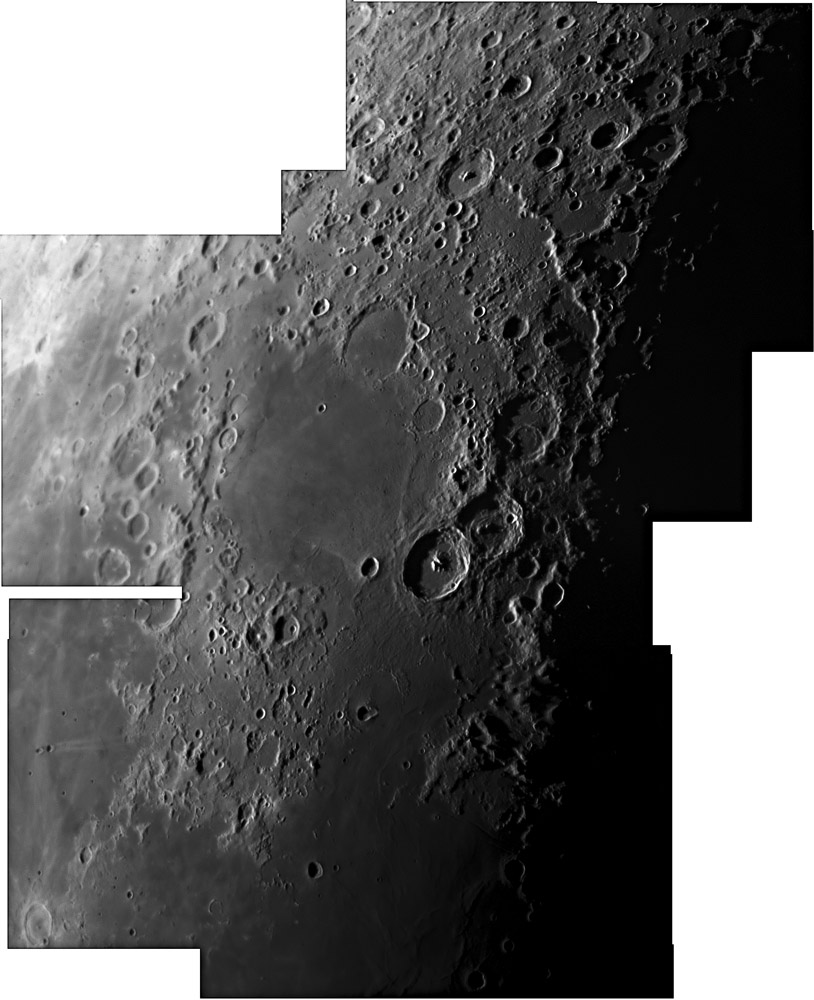August 2, 2014
Subjective Observing

image by Jose Cabello, Málaga, Spain
Experiences this evening have taught me, no re-taught me, how subjective observing is. I just got a new telescope, the Celestron Evolution 6", that can be controlled by an app for the iPhone. So I was getting first lunar light with it, trying different eyepieces and learning how to operate it. I did enjoy the Moon - Celestron optics always seem to be pretty good, but finally put the scope away and came in to do LPOD; see how devoted I am. I was delighted to find in my inbox two images taken this (Friday) evening to compare with my observing. One is this one from Jose in Spain, and the other was a full mosaic from Maurice Collins in New Zealand. In looking at Jose's nice image I was reminded that I had observed Theophilus, Fracastorius (could not see the rille across its floor) and the Altai Mountains. But the image above also clearly shows the large flooded ring surrounding Torricelli, which I didn't notice at all! Similarly, Maurice commented that his visual observations concentrated on Piccolomini, and then Maskelyne and the Messier twins. Once again, I wasn't even aware they were visible tonight - I overlooked them! I think all visual observations are very subjective, we see what we happen to observe in detail, and miss everything else. I learned that his is a common problem 20 years ago when we were training astronauts at Johnson Space Center, and we brought in an x-ray technologist to talk about observing and seeing. The x-ray guy said it was very common for doctors to be told when first looking at a chest x-ray what might be the problem with the patient (e.g. perhaps she was reporting chest pains), and the doctor looked closely at the heart and completely missed other things. So we observe what we are looking for, and unless we specifically want to check the entire terminator or the bright limb, we miss other conspicuous things.
Chuck Wood
Technical Details
2014/08/01. C11, QHY5L-II, IR-Pass 685nm
Related Links
21st Century Atlas charts 6 & 7.



